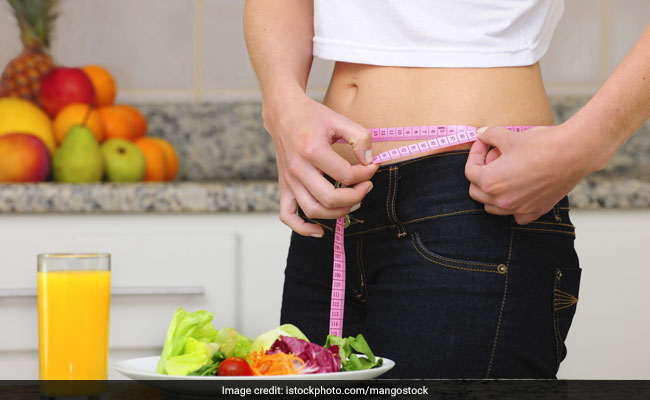Why do women accumulate fat on the sides and waist
Up to a certain point, many women (and most men) manage to keep themselves in shape by controlling their diet, going to the gym regularly, and increasing overall physical activity.
But after 40 years, many begin to notice that their belly is predominantly growing, fat is concentrated at the waist, and the reason for this is hormones. Fighting this type of excess weight is very difficult, because fat is in a kind of “fat traps”.
These are the areas where fat is deposited most quickly and easily, but it is extremely difficult to burn it out of these areas through training and dieting.
Among the key reasons for the accumulation of hated fat in the waist area, the following factors are distinguished:
- genetic predisposition. What genes you get from your parents is a mystery, a kind of nature’s lottery. If everyone in the family is plump and round, the risk is much higher, so you should take care of your nutrition and activity right away, from an early age.
- We must try to accustom ourselves to healthy eating and sports – this can be quite difficult if the family does not have such traditions, but there is an opinion that “we have a wide bone.”
Constant stress.

It provokes the release of cortisol, which stimulates the accumulation of subcutaneous and abdominal fat.
Often, in combination with cortisol, bad habits also work – eat stress with chocolates, drink alcohol (and these are calories!). In your case, you need to relieve stress in the gym or in nature, in bed, getting enough sleep.
Age changes.
As we age, we become slower, our metabolism slows down. Therefore, every 10 years you need to cut the amount of servings by 10%.
In addition, you need to monitor your activity – the gym or an active lifestyle should become your friends.
Fat is also an endocrine organ
It is important for people who are gaining weight to understand that adipose tissue itself is also considered part of the endocrine system, as it produces a large amount of hormones and takes part in their metabolism. Therefore, simple primary obesity may well lead to hormonal failure.
In this case, the scheme is simple: you eat extra kilos during the winter. The fats deposited on the sides and abdomen begin to produce hormones, stimulating the “sticking” in problem areas even more extra pounds, even if you went on a diet and still crawled out for walks in the park.
In this case, the course of obesity runs the risk of moving into a more serious stage, and the woman or man falls into a kind of vicious circle, starting to gain weight due to both hormones and nutritional problems.
Belly fat: what hormone can influence?
Various disorders in the endocrine system can lead to the accumulation of excess fat in problem areas. For example:
- hypothyroidism – lack of thyroid hormones
- hypercortisolism – an excess of cortisol;
- hypogonadism — decrease in testosterone;acromegaly – an excess of growth hormone.
The risk zone also includes women with polycystic ovary syndrome, which develops with an increased level of male sex hormones – androgens.
If a person suddenly began to gain weight, but at the same time did not change either the diet or the level of physical activity and, in general, continues to adhere to his usual lifestyle, this is a reason to contact an endocrinologist.
The specialist will prescribe the necessary examinations to rule out hormonal failure.
Why does fat appear most often in the abdomen?

Subcutaneous fatty tissue “migrates” to the abdomen when there is an excess of cortisol in the body, a stress hormone produced by the adrenal glands. This type of obesity is also called abdominal (“abdomen” – in Latin it is “stomach”).
Weight gain in the abdomen is considered the most dangerous factor in terms of the prospect of developing cardiovascular diseases: strokes and heart attacks. That is why, in obesity, doctors usually recommend taking tests for cortisol levels.
But if there is neither time, nor nerves, nor strength for exercises and nutrition correction, use these elementary life hacks.
They will help tighten the stomach to a more or less decent state. True, in this case, of course, you should not count on a cardinal disposal of excess fat reserves.
Drink more water
Yes, we, too, are already tired of the endless reminders of 8 glasses a day. However, a fact is a fact: at the first hint of a lack of water, the body, taught by the bitter experience of evolution, immediately begins to store life-giving moisture, including on the stomach.
If the swelling in the arms and legs caused by the same cause is familiar to many, then we rarely notice swelling in the press area. But in vain. Often it is she who is responsible for the protruding tummy.
Chew food thoroughly
The better you grind your lunch or dinner with your teeth, the less space it will take in your stomach. So, a full stomach will not cause a bloated stomach.
In addition, the longer you chew, the less you eat before the brain gives a signal: “I’m full.” This will allow you not to gain extra calories, which, you see, also affects the condition of the abdomen in the future.
